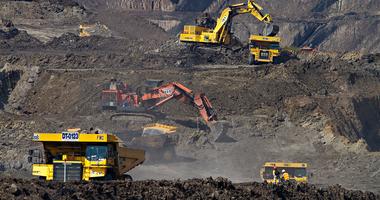
Australia Is Joining the US in Passing a Historic Climate Bill
While the US has seized global headlines with the passage of landmark climate legislation, Australia has been working to pass the equally historic Climate Change Bill.
Climate advocates are all too familiar with the idea of climate tipping points, where static Earth systems are rapidly transformed into new and unfamiliar states.
For advocates, there's an important analogue in the concept of political tipping points. Only instead of rising temperatures melting glaciers, the past two weeks in Australia and the US have shown how rising community concern can melt frozen political positions – with equally dramatic results.
We saw it in July, when Australia’s new Labor government introduced its Climate Change Bill. The party had campaigned promising to legislate a 2030 emissions reductions target of 43% and net zero emissions by 2050. It follows the "climate war" years during which several prime ministers were removed for attempting to introduce bills to address the climate and energy crises.
This latest attempt at laws to reduce emissions passed rapidly through the lower house because the new parliament (featuring two Climate Reality Leaders) was focused on securing needed, urgent action on climate change. It is expected to pass the Senate in September with the support of the Greens and an Independent who hold the balance of power in the Australian Senate. This will cap an exceptional few months for climate legislation in both Australia and the US.
In fact, governments aren’t required to enshrine climate commitments in law before bringing them to the global COP 27 negotiations in Egypt in November. However, doing so signals a strength of commitment from Australia’s new government.
The previous coalition government had been widely criticised as a laggard at international negotiations for ignoring its voters and worsening climate impacts after refusing to improve Australia's initial target of reducing emissions 26–28% set in 2015. Increasing this target – as the new government has done – has been welcomed by businesses, Pacific Island leaders, and NGOs, who simultaneously cautioned that the commitments are still a long way off credible science-based targets of a 74% reduction by 2030 and reaching net zero by 2035.
Acknowledging this ambition gap, one member of parliament, Zoe Daniel, described the target as "a floor, not a ceiling." Putting these words into effect, the legislation contains a mechanism to ensure emissions reductions can only be ratcheted upwards – not down – by his or future governments.
The road to COP 27 in Egypt
For all the progress the new government has made, contentious points remain. In particular, the government emphatically refused to deny new fossil fuel developments. This despite the International Energy Agency stating last year that there can be no new coal, oil or gas developments if the world is to reach net zero by 2050. As the world’s third-largest exporter of fossil fuels, this is a key policy area that needs attention.
Essentially, the position is based on the premise that if Australia won't sell its supposedly cleaner fossil fuels abroad, countries will just get them from somewhere else without the same standards. This has been called out as a “pernicious and a direct evasion of Australia’s responsibilities” by our University of Melbourne colleague and climate politics expert, Professor Robyn Eckersley.
Meanwhile, a recent Pacific Islands Forum Leaders Meeting, including Pacific, Australian, and New Zealand prime ministers acknowledged that:
“[T]he Pacific is facing a Climate Emergency that threatens the livelihoods, security and wellbeing of its people and ecosystems, backed by the latest science and the daily lived realities in Pacific communities.”
Australia, the US and all nations will need to do more to meet this emergency. The Australian government can expect pressure to sign on to the Global Methane Pledge at COP 27, given the scale of its coal and gas industries and exports. Pressure will (and should) only increase with more accurate satellite data now leading to warnings that associated emissions are likely to be underreported.
The pledge commits signatories to reduce methane emissions by 30% by 2030. This is significant as methane is responsible for roughly 30% of the increase in global temperatures since pre-industrial times. Over 100 countries, responsible for 50% of global anthropogenic methane emissions and over two-thirds of global GDP, have already signed on to the pledge.
To learn more and join this fight for just solutions, connect with The Climate Reality Project - Australia and Pacific.
Ciaran McCormack manages the Australia and Pacific branch of The Climate Reality Project.




